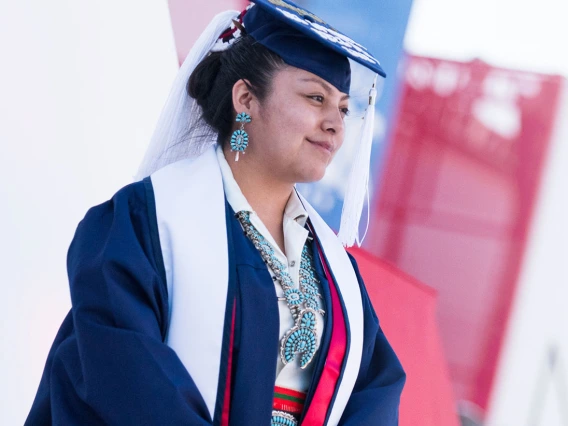Human Rights Practice
Undergraduate Certificate
Quick Facts

Top 1%
of all Higher-Ed
Institutions
- Center for World University Rankings, 2024
#1
In Alumni Earnings
Potential Among Arizona's
Public Universities
- Payscale, 2024
The Undergraduate Certificate in Human Rights Practice will give you the knowledge, insights, and skills needed to contribute to a more just and equal world. Coursework in Human Rights Practice will enable you to gain a broad understanding of human rights issues around the globe while also offering opportunities to focus on the topics, groups, and locations that concern you the most.
The curriculum emphasizes acquiring the practical capabilities that will enable you to work with an organization aligned with the principles of human rights and to pursue your own personal and professional commitments to social justice. One of the program's distinguishing features is its extensive interaction between students and leading practitioners through video conferences, allowing for a global perspective on human rights issues. Problem and project-based learning is central to the curriculum, providing opportunities for you to engage with real-world issues.
Through this course of study, you gain an understanding of global human rights issues while also having the flexibility to focus on specific topics, groups, communities, and locations that align with your interests and concerns.
By the end of the program, you’ll graduate with a portfolio of applied work, a network of contacts, and marketable skills necessary for advancing human rights globally. Upon graduation, you'll be prepared for careers in governmental and non-governmental organizations at local, national, and international levels, as well as further studies in law or graduate programs focusing on human rights.
*Residents of some U.S. Territories may not be eligible. Please see our Eligibility & State Authorization page for more information.
The Human Rights Practice Undergraduate Certificate requires a minimum of 12 units, 6 of which must be upper-level. At least two of the following courses (6 units) are required.
This course introduces human rights, especially through the lens of civil society. You will be introduced to the history and theory of human rights as well as a range of current issues. You will be introduced to the history and theory of human rights as well as a range of current issues. You will also be introduced to ethical, political, and cultural issues in working with community groups to advance human rights.
In this course, you will explore comparative and critical inquiry into the historical, theoretical, and social aspects of various human rights abuses currently occurring domestically and internationally. You will delve into four or five current human rights issues, examining their social, political, cultural, and historical causes. You will also examine social movements and other means for addressing these issues and have the opportunity to explore other current issues of interest.
This class introduces students to human rights in the U.S. context. Throughout the course, we will use interdisciplinary approaches to human rights, the fundamental rights all humans are entitled to by being human. The course will cover such critical issues as indigenous rights, environmental justice, discrimination, the rights of LGBTQ people, and women's rights.
This course exposes students to the pivotal roles that stories play in human rights work, including conveying testimonies, education, and marketing human rights abuses. We will look at fictional and nonfictional stories told through various media and analyze important ethical and political issues associated with human rights testimonies.
This course introduces topics on gender-based violence, including nature and scope, prevention and response, and anti-violence activism. Using intersectional and feminist frameworks, students will work on projects aimed at increasing awareness about gender violence and/or supporting survivors.
Outcomes
Skills
Earning your Undergraduate Certificate in Human Rights Practice will build core skills, including:
- Advocacy skills
- Analytical skills
- Critical perspectives
- Experience in “real-world” contexts
- Foundational knowledge
- Multimedia advocacy
Potential Career Paths
Graduates of the Undergraduate Certificate in Human Rights Practice program will be prepared to pursue careers in the following fields:











